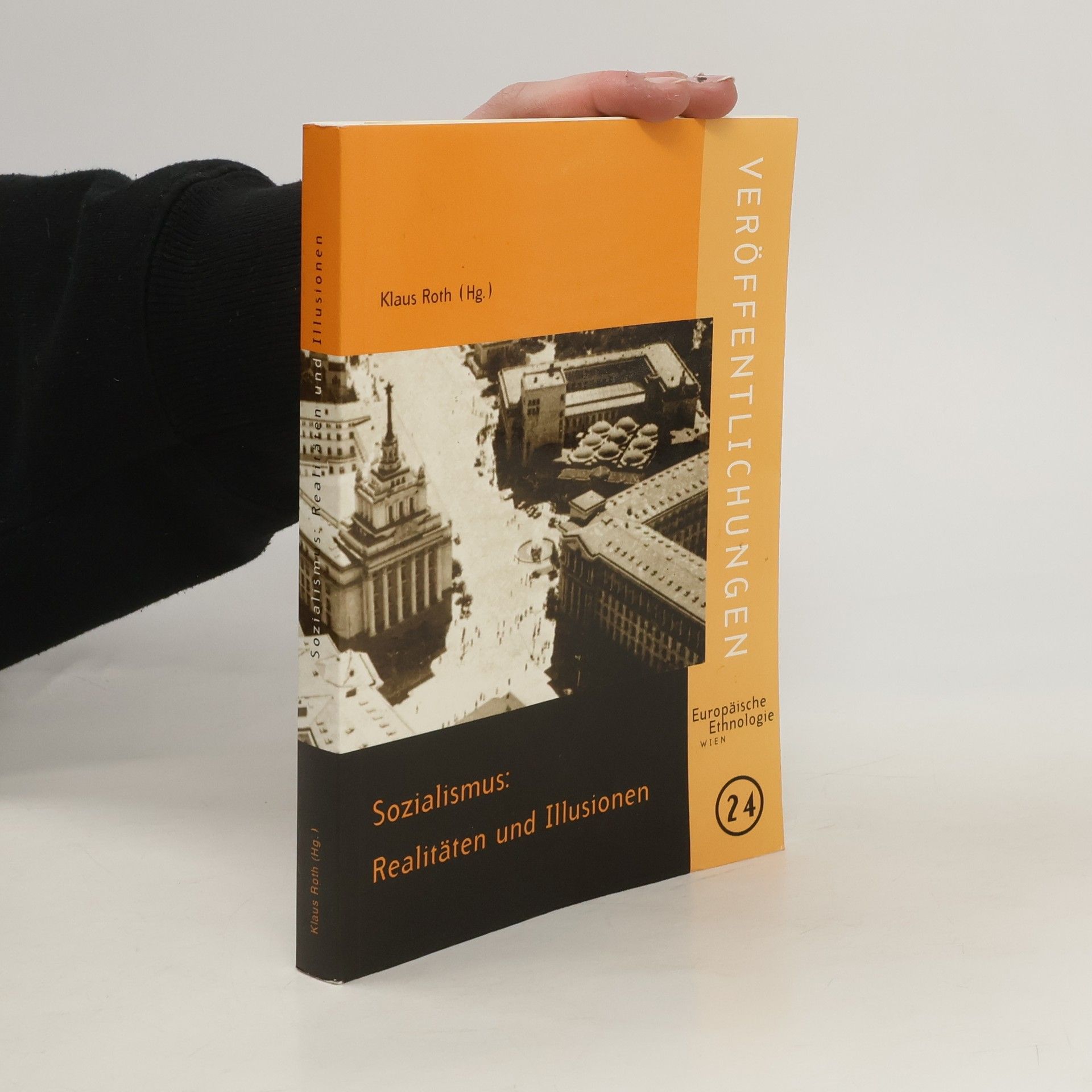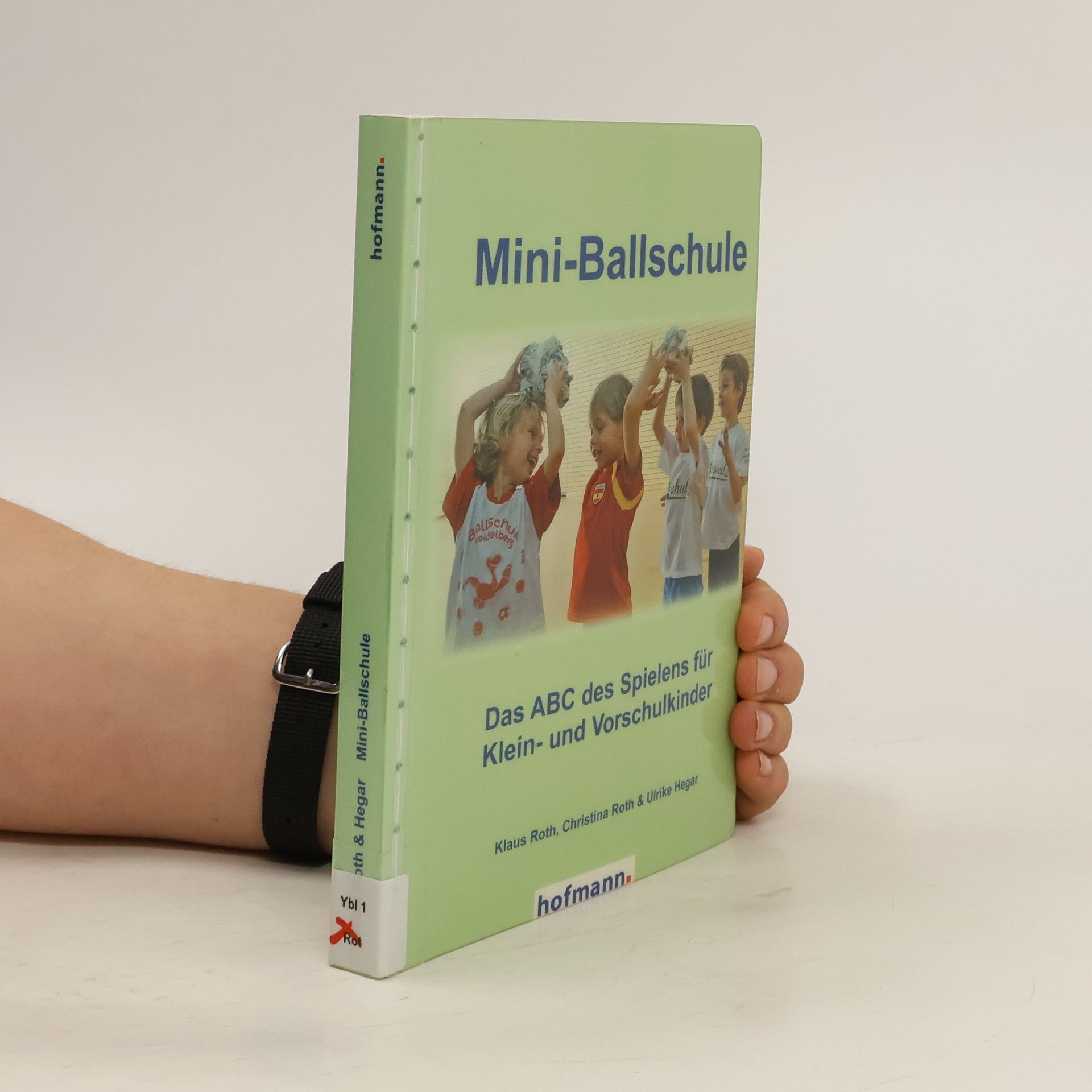Das Buch Ballschule Tischtennis wendet sich an Übungsleiter, die in Vereinen oder in Ballschulgruppen tätig sind, sowie an engagierte Sportlehrer in der Primar- und Sekundarstufe I. Der Lehrplan beinhaltet zum einen ein Plädoyer für eine Verknüpfung einer allgemeinen bzw. rückschlagspielgerichteten Grundausbildung mit dem Einstieg in die Welt des Kinder-Tischtennissports. Zum anderen folgt die Ballschule Tischtennis einer kompetenzorientierten Denkweise, nach der die Grundtechniken als Aufgabenlösungen für die Phasen Aufschlag - Rückschlag, Tisch als Hindernis & Eröffnung und Offenes Spiel angesehen werden. Dem „Spielen miteinander“ kommt von Beginn an eine Schlüsselrolle zu. Im umfangreichen Praxisteil des Buches werden Baustein-Spiele, Baustein-Übungen und Reihenkonzeptionen zur Verbesserung von insgesamt 23 koordinativen (A), perzeptiv-motorischen (B) und technisch-taktischen Basiskompetenzen (C) präsentiert, aus denen sich zusammengenommen das ABC für Tischtennisanfänger ergibt.
Klaus Roth Book order (chronological)






Tierkarten für Ballschulspiele
- 20 pages
- 1 hour of reading
Das Tierkarten ABC bringt Abwechslung, Spaß und Motivation für Ballschulkinder. Die bunten und lustigen Zeichnungen regen die kindlichen Phantasien an – egal, ob in der U3-Ballschule, der Mini-Ballschule oder der Ballschule für Grundschulkinder. Zu jedem Bild gibt es eine Kartenrückseite. Sie enthält kreative Spielideen, passend zu der jeweiligen Tierart. Hier finden die Ballschulleiter – unter Überschriften wie Kokosnussschlacht, Reifenshow, Gepardenstaffel oder Tunnelpolo – Anregungen für die Gestaltung freier, unangeleiteter Spielphasen und Beispiele für entwicklungsgerechte Impulse in Form von Fragen oder Bewegungsgeschichten. Die Kinder „schlüpfen“ dann in die Rolle der dargestellten Tiere. Sie imitieren z. B. ihre Fortbewegungsformen, ihre sonstigen motorischen Eigenheiten und Talente, ihre Geschicklichkeit bei der Nahrungssuche, ihr Zusammenleben mit Artgenossen oder auch ihr Verteidigungsverhalten gegenüber größeren und stärkeren Tieren. Unter der Rubrik „Schon gewusst?“ können die Ballschulleiter – je nach Alter und Entwicklungsstand der Kinder – die Karten und die zugehörigen Spiele auch zur Vermittlung von interessanten Fakten zu den Besonderheiten der Tiere und zur Erweiterung des Wortschatzes nutzen. Eine weitere Kategorie liefert Vorschläge für aufgabenorientierte Spielformen, bei denen die Kinder Ideen für ihre Handlungsausführungen erhalten.
Ballschule Zielschussspiele
- 176 pages
- 7 hours of reading
Die Ballschule Zielschussspiele beinhaltet ein Plädoyer für eine integrative, übergreifende Einführung in die Welt der Sportspiele. Sie orientiert sich – wie alle Ballschulprogramme – an den zentralen Gütesiegeln für Kindersportangebote: den Prinzipien der Entwicklungsgemäßheit, der Vielseitigkeit, der Freudbetontheit und des spielerisch-beiläufigen (impliziten) Lernens. Die Ziele des Vermittlungskonzepts sind auf eine Schulung von 21 koordinativen, perzeptiv-motorischen und taktischen Basiskompetenzen gerichtet, aus denen sich zusammengenommen das ABC des Spielenlernens für die (Teil-)Familie der Zielschussspiele ergibt. In dem umfangreichen Praxisteil werden auf mehr als 100 Seiten Beispielsammlungen für innovative, praktisch erprobte Ballschulspiele und -übungen vorgestellt. Der vorliegende Band 9 der Ballschul-Reihe wendet sich an Sportlehrer der Klassenstufen 3 bis 7 sowie an die vielen engagierten (Vereins-)Übungsleiter, die in Ballschulgruppen und in der Grundlagenausbildung verschiedener Zielschussspiele (Basketball, Handball, Fußball, Hockey usw.) tätig sind.
Mini-Ballschule 2
Spielstationen und Stundenbilder für Kita und Verein
Im zweiten Band zur Mini-Ballschule für 3- bis 6-jährige Kinder werden (weitere) erprobte Praxisideen zur Gestaltung von Spielstunden in Kitas und Vereinen vorgestellt. Das Buch enthält eine umfangreiche Beispielsammlung für Bewegungslandschaften und Spielstationen sowie insgesamt 19 Stundenbilder als Grundlage der Gestaltung kompletter Ballschuleinheiten – von der Begrüßung bis hin zu den Abschlussritualen. Den vier zentralen Prinzipien der Mini-Ballschule entsprechend lernen die Kinder in entwicklungsgerechter, vielseitiger, freudvoller und spielerisch-impliziter Form das ABC des Spielens mit Bällen. Der Buchstabe A kennzeichnet dabei elementare motorische, B perzeptiv-taktische und C koordinative Basiskompetenzen. Das Buch richtet sich an engagierte Erzieher*innen und an Übungsleiter, die im Bereich der Mini-Sportspiele in Vereinen und bei anderen Kindersportanbietern tätig sind.
Ballschule Fußball
- 176 pages
- 7 hours of reading
Das Buch Ballschule Fußball wendet sich an Trainer*innen, die in Sportvereinen im Bambini-, F- bzw. E-Jugendbereich oder in Ballschulgruppen tätig sind, sowie an Sportlehrkräfte in der Primar- und Sekundarstufe I. Der Lehrplan orientiert sich an den zentralen Prinzipien der Vielseitigkeit, der Entwicklungsgemäßheit, der Freudbetontheit und des spielerisch-impliziten Lernens. Er beinhaltet zum einen ein Plädoyer für eine Verknüpfung einer allgemeinen spielerischen Grundausbildung mit den bewährten Konzepten des Kindertrainings im Fußball. Zum anderen folgt die Ballschule Fußball einer kompetenzorientierten Denkweise, nach der die elementaren Spieltechniken und -taktiken als Aufgabenlösungen für die Phasen Spielaufbau, Torannäherung, „Torabschluss“, „Ballbesitzwechsel“ und „Torabschluss verhindern“ angesehen werden. Im umfangreichen Praxisteil des Buches werden Baustein-Spiele und Baustein-Übungen zur Verbesserung von insgesamt 28 koordinativen (A), taktisch-technischen (B) und technisch-taktischen Basiskompetenzen (C) präsentiert, aus denen sich zusammengenommen das ABC für Fußballanfänger ergibt.
In diesem Band wird ein wissenschaftlich fundiertes und praktisch erprobtes Programm zur motorischen Frühförderung von Kleinkindern vorgestellt. Die Ziele, Inhalte und Methoden der U3-Ballschule orientieren sich in einer bisher einzigartigen Weise an den vier zentralen Gütesiegeln für Bewegungsangebote in diesem Altersbereich: den Prinzipien der Entwicklungsgemäßheit, der Ganzheitlichkeit, der vorbereiteten Umgebung und der unterstützenden Impulse. Neu ist auch, dass einfach handhabbare Checklisten zur Bestimmung des individuellen motorischen Leistungsstandes der Kinder und der für sie aktuell erreichbaren Lernziele zur Verfügung gestellt werden. Der Praxisteil enthält auf 115 Seiten eine umfassende Beispielsammlung mit 20 Bewegungslandschaften und 30 Spielstationen, die jeweils für die Gestaltung kompletter Ballschuleinheiten genutzt werden können. Das Buch richtet sich vor allem an engagierte Erzieher*innen und an Übungsleiter, die Kleinkinder in Sportvereinen bei ihren ersten Schritten in die Welt des Spielens mit dem Ball begleiten wollen.
Die motorische Frühförderung gehört – vor dem Hintergrund der veränderten Lebenswelten unserer Kinder – zu den wichtigsten gesellschaftlichen Zukunftsaufgaben. In diesem Band wird ein wissenschaftlich überprüftes und praktisch erprobtes Programm für Kinder im Alter von 3 bis 6 Jahren vorgestellt. Die Mini-Ballschule orientiert sich an den vier zentralen Gütesiegeln für Kindersportprogramme: den Prinzipien der Entwicklungsgemäßheit, der Vielseitigkeit, der Freudbetontheit und des kindgerechten spielerisch-impliziten Lernens. Im Mittelpunkt stehen das freie, impulsgesteuerte und aufgabenorientierte Spielen. Das Buch richtet sich an engagierte Erzieherinnen und Übungsleiter, die im Bereich der Mini-Sportspiele unterrichten. Der Praxisteil enthält auf ca. 130 Seiten mehr als 60 Beispiele für einfach umsetzbare Mini-Spielreihen, die jeweils für die Gestaltung kompletter Ballschulstunden genutzt werden können.
The papers in this volume continue our focus on emotions of people in Southeast Europe. Grief and sadness are, of course, universal, but they take on different forms of expression. Strong emotional values are often attached to specific foods (e.g. the kurban), usually food is of great importance for labour migrants and in times of crisis. Likewise, dress can be of great emotional significance and value. Wars as well as communist collectivization often lead to emotional consequences such as trauma. Smells and tastes can become expressions of actual or remembered emotions, a fact that can also concern the researchers themselves. Klaus Roth is professor em. at the Institute for European Ethnology of Ludwig-Maximilians-University Munich. Milena Benovska is professor em. of the Dept. of Ethnology and Balkan Studies of the South-West University of Blagoevgrad, Bulgaria. Ana Luleva is Assoc. Prof. at the Institute of Ethnology and Folklore Studies of the Bulgarian Academy of Sciences in Sofia.
Ballschule in der Primarstufe
26 komplette Unterrichtseinheiten für die Klassen 1 bis 4
Die Bücher der Reihe Sportstunde Grundschule orientieren sich an den fachlichen Kompetenzen, die länderübergreifend in den Curricula für den Sportunterricht ausgewiesen werden. Der Band 1 konzentriert sich auf das Handlungsfeld "Spielen, Spiele". Dieses wird in allen 13 Richtlinien - Berlin, Brandenburg, Bremen und Mecklenburg-Vorpommern haben einen gemeinsamen Lehrplan erstellt - den Kernbereichen des Grundschulsports zugeordnet, und das nicht selten und auch nicht zufällig an vorderster Stelle. In den Klassen 1 bis 4 steht das Sammeln von vielfältigen Bewegungs- und Spielerfahrungen mit verschiedenen Bällen und in unterschiedlichen Spielräumen im Vordergrund. Die Philosophie der Sportlehrpläne entspricht damit einer Position, die gewöhnlich mit dem Begriff der Integrativen Sportspielvermittlung überschrieben wird. Die Ballschule hat sich als erprobtes Konzept einer solchen sportspielübergreifenden Basisausbildung national und international etabliert. Sie wird bisher vorwiegend in Form von Schulsport-AGs und in Sportvereinen durchgeführt. Mit den in diesem Buch präsentierten 26 Doppelstunden für die Klassen 1 bis 4 wird aufgezeigt, wie die Ballschule im "normalen" Sportunterricht durchgeführt werden kann: also mit 25 bis 30 Kindern und der üblichen Ausstattung von Grundschulhallen. Bei allen Einheiten finden sich zusätzlich Hinweise darauf, wie aus den Doppelstunden sinnvolle Einzelstunden gemacht werden können.
Mini-Ballschule
- 310 pages
- 11 hours of reading
